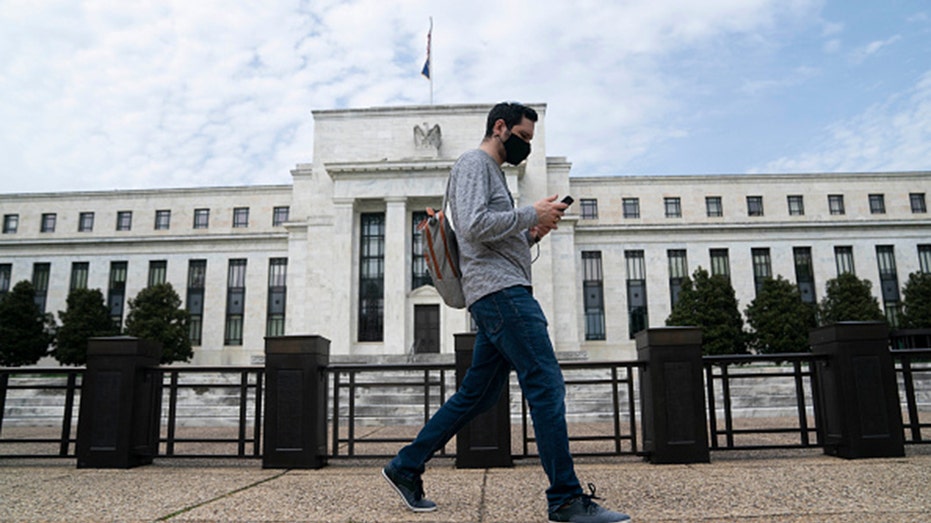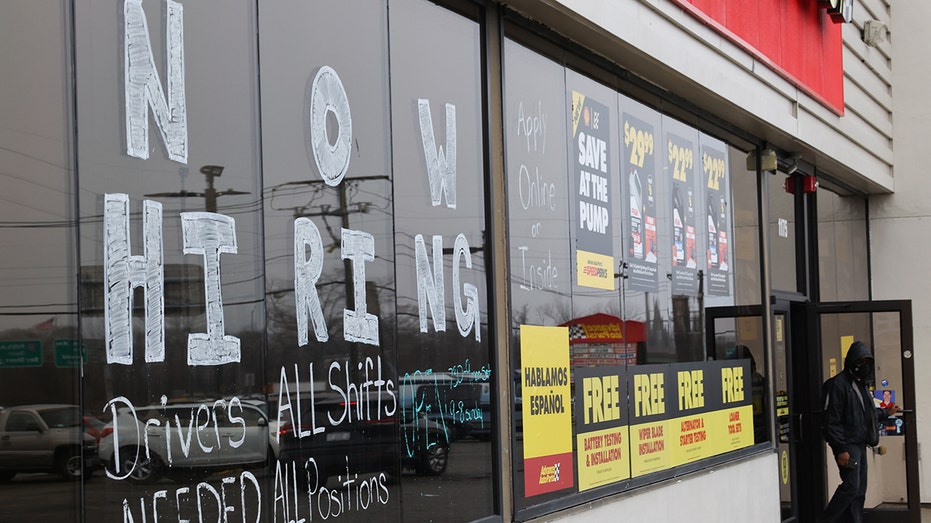Fed's Beige Book reports US economy slowing in some areas as inflation roars
Economic growth slowed markedly in some Federal Reserve districts this spring
Officials called out for not seeing 'great damage' they are doing to the economy
North Dakota Republican Sen. Kevin Cramer weighs in on Biden's energy policies on 'Kudlow.'
The U.S. economy showed signs of decelerating in some parts of the country during the spring as sky-high inflation, supply chain bottlenecks and a labor shortage weighed on businesses, according to a new Federal Reserve report.
In its region-by-region roundup of anecdotal information known as the Beige Book, the Fed reported that economic activity slowed in four of its 12 districts during the mid-April through May period that the report covers as firms continued to struggle with rising prices, a lack of available workers and disruptions from COVID-19.
"Four districts explicitly noted that the pace of growth had slowed since the prior period," the report said.

A man wearing a mask walks past the U.S. Federal Reserve building in Washington D.C., April 29, 2020. (Xinhua/Liu Jie via Getty Images / Getty Images)
Although inflationary pressure remained "strong" over the past few months, the Beige Book said that three Fed districts reported a moderation in prices for some goods and services. Most businesses continued to pass along higher costs to their consumers but noted growing pushback, often in the form of buying less or choosing less expensive brands.
DISMISSING RECESSION PROBABILITY IS A 'MISTAKE,' FORMER WHITE HOUSE ECONOMIST WARNS
Some areas also reported some slack in the labor market. While most districts said employment rose "modestly or moderately," one district "explicitly" reported that job growth slowed in the spring.
"Some firms in most of the coastal districts noted hiring freezes or other signs that market tightness had begun to ease," the report said. "However, worker shortages continued to force many firms to operate below capacity."

A large "now hiring" advertisement posted on the windows of an Advance Auto Parts store in Bay Shore, N.Y., March 24, 2022. (Steve Pfost/Newsday RM via Getty Images / Getty Images)
The Fed has started taking aggressive steps to tighten policy in order to bring down inflation, including lifting the short-term interest rate by 50-basis points in May and starting to unwind a massive $8.9 trillion balance sheet. The concern now is that the central bank may inadvertently trigger a recession by crushing consumer demand. The Fed has rarely succeeded in cooling inflation without dragging the economy into a downturn.
CLICK HERE TO READ MORE ON FOX BUSINESS
Businesses are increasingly worried about the possibility of a recession. Three districts said they have "concerns" about a recession, up from zero in April.
"While many contacts remained optimistic, an increasing number expected a recession by year’s end," the Boston Fed said.





















